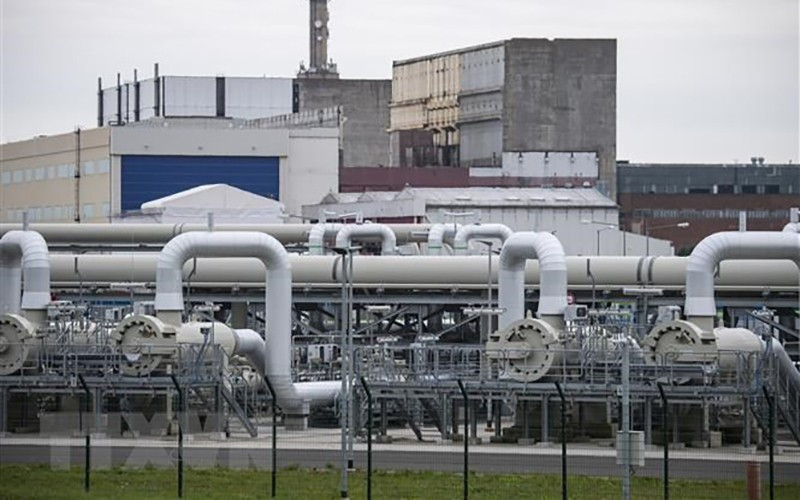In early 2022, when the Russia-Ukraine conflict broke out, many EU economies faced a serious energy shortage challenge when the "blood vessels" that supply gas from Russia to the EU were "clogged" by sanctions from the EU and Western countries. However, EU countries quickly found an alternative to Russian energy and have now basically solved the "problem" of energy shortage.
In the EU's energy supply assurance solutions, the gas reserve capacity in this bloc must be 90% filled by November 1 every year and can be shared among member countries on the spirit of solidarity, despite the turmoil in the gas market. According to the EC's announcement on August 18, the EU's gas reserves reached 1,024 TWh, equivalent to more than 93 billion cubic metres and 90.12% of storage capacity.
Thus, the EU has reached the target of filling 90% of its gas reserves nearly three months earlier than the set deadline. In addition, the "wind has reversed" on the European gas market. In August 2022, wholesale gas prices in Europe reached a record high of 350 EUR per megawatt hour (MWh) due to reduced supply from Russia. However, since the end of May this year, the price of this commodity has dropped many times to below 26 EUR per MWh. This is the lowest level in nearly two years. Experts said that this development reflects the fact that supply exceeds demand and gas prices may continue to fall.
In recent time, under the pressure of lack of energy supply, a series of solutions to replace Russian gas have been actively carried out by the entire EU. EU members have made efforts to diversify gas supplies, develop renewable energy; increase imports of liquefied natural gas (LNG), and cut consumption. Germany is the leading country in quickly finding alternatives to Russian gas from Norway and the US, by paying higher prices for their gas.
Therefore, Norway has increased its gas production by 8% last year and has become the leading gas supplier in Germany, as well as Europe in general, since February 2022. German Economy Minister Robert Habeck also visited Qatar and the two sides signed a long-term energy cooperation agreement. EU countries are also working to build infrastructure to import LNG. Germany inaugurated its first liquefied petroleum gas receiving facility at the port of Wilhelmshaven in December 2022.
In addition, according to the European Commissioner for Energy Kadri Simson, over the past year, the EU has increased its investments in renewable energy and made efforts to improve energy efficiency. Immediately after the outbreak of the Russia-Ukraine conflict in February 2022, members of the "great EU family" implemented emergency policies called RePowerEU, which focus on the development of green energy.
Large investments in green technology will make it possible for the EU to completely abandon Russian gas by 2028. In addition to planned investments, a new report from the Oxford Sustainable Finance Group said under the European Green Deal, the EU will need 512 billion EUR to complete this transition. A total investment of 811 billion EUR will be split for renewable energy (706 billion EUR) and heat pumps (105 billion EUR). Important investments can be partially recovered by making savings.
The lack of energy supply used to be a dilemma for EU countries more than a year ago and is a concern not only of the old continent but also of the global economy. The fact that the bloc’s countries quickly devised a solution to the above problem is an important fulcrum for the EU's plan to curb inflation and restore growth, and is also a positive signal for the world economy. Not only is energy security a vital issue for the EU economy, it is also an important key for this alliance in addressing other political and foreign affairs issues in the complicated and unpredictable geopolitical context.
















